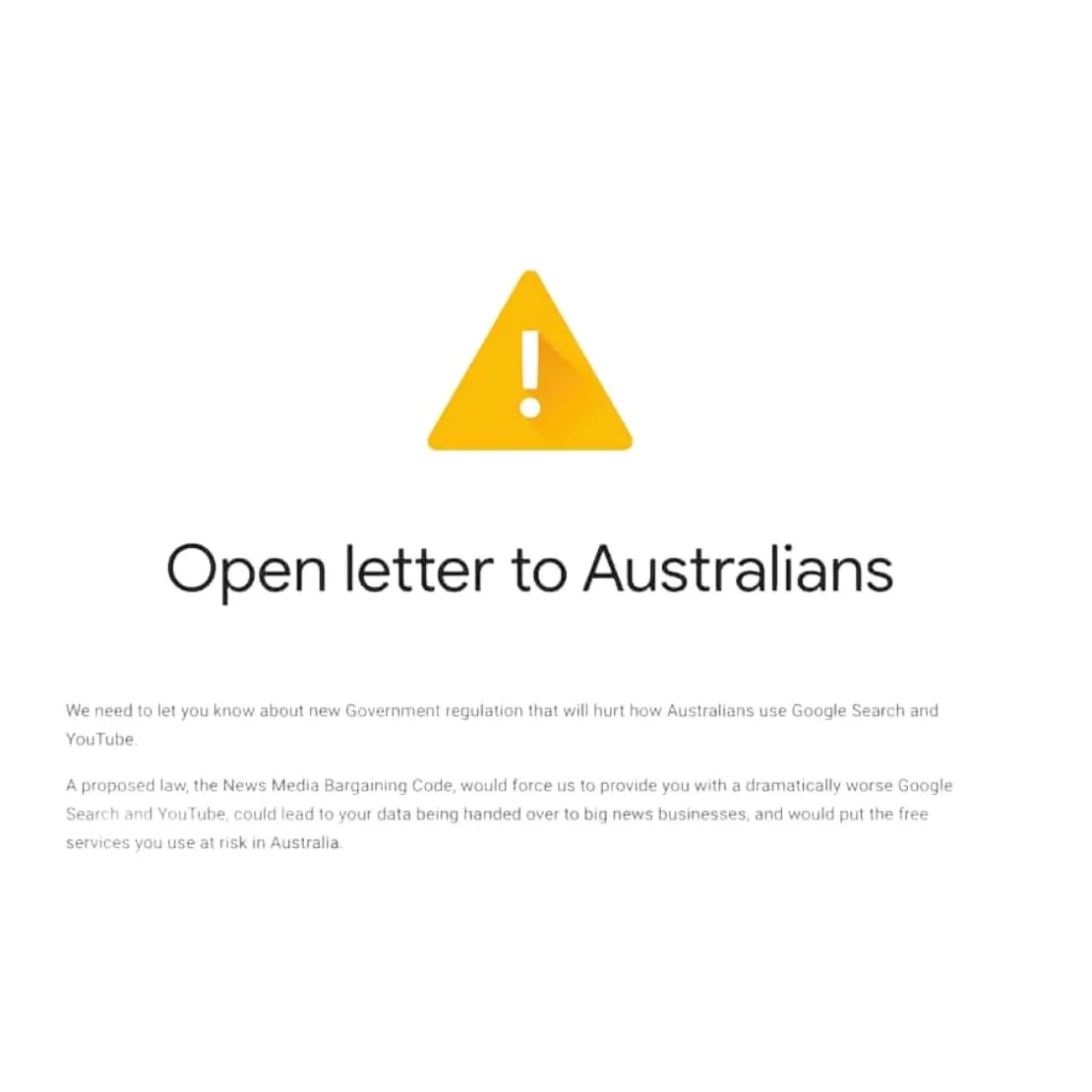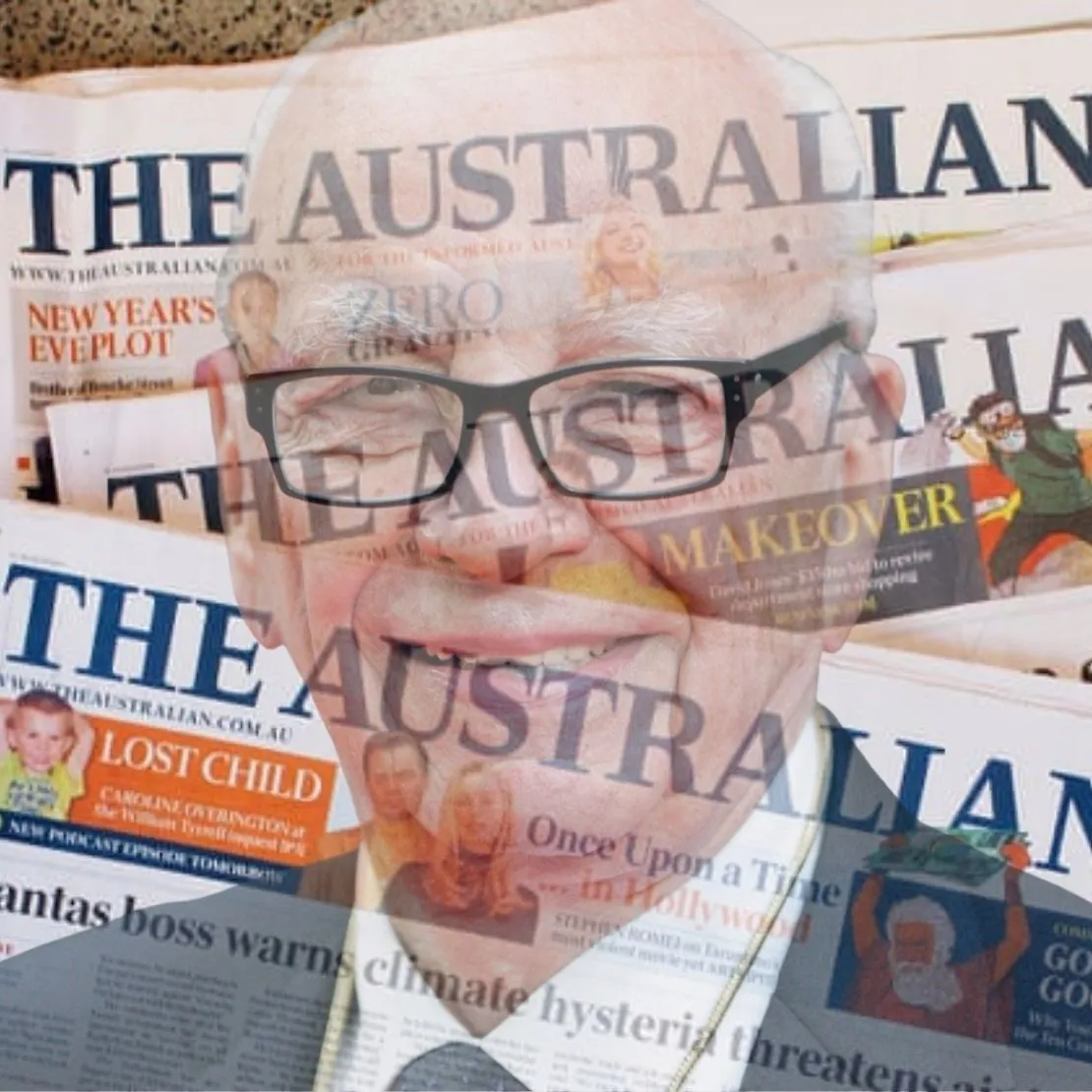Analysis of the social media giant's big move
*This is a developing story*
Last week, those residing in Australia discovered that they could no longer share news articles and links on Facebook with their friends and network. And it was not a technical glitch, rather it was Facebook’s reaction towards Australia’s proposed new Media Bargaining law. Scott Morrison, the Australian Prime Minister, likened the move by Facebook as “unfriending Australia.” As livid responses poured in, let us take a step back to understand why Facebook resorted to such a move.
THE MEDIA BARGAINING LAW
Essentially, the law requires media companies like Facebook and Google to negotiate and enter into agreements with news publishers for the right to display their links on its platforms. So for example, every time a user posts a link to The Sydney Morning Herald or The Age on Facebook, Facebook will have to pay The Sydney Morning Herald or The Age some money. From the perspective of the news publishers, advertisers have flocked to platforms like Facebook and Google ever since they started gaining prominence, and their digital ads and revenues have dried up. So the new law has been chalked up to ask Facebook and Google to pay the news publishers for using their content on their platforms.
The Media Bargaining Law has been in the works for a while. The Australian Competition and Consumer Commission (ACCC) was asked by the Australian government to draft a code to address the bargaining power imbalances between news publishers and digital platforms. The “code seeks to address the fundamental bargaining power imbalance between Australian news media businesses and major digital platforms. This imbalance has resulted in news media businesses accepting less favourable terms for the inclusion of news on digital platform services than they would otherwise agree to.”
The code currently applies only to Facebook and Google and has only been passed at the lower house of the federal parliament. It has yet to go through the senate before receiving royal consent from the Governor-General for the code to formally become a law.
When the ACCC published the draft code for public consultation in July, 2020, the Google search landing page warned how the new code could change the way Australians search.

Whereas Facebook restricted all news publishers on its platform, Google has inked deals with several Australian publishers such as Nine Entertainment and Seven West Media. Google has also signed a multi-year partnership with Rupert Murdoch’s News Corp. The deals have been signed as part of Google’s “Google News Showcase” wherein Google will negotiate deals with news publishers and also “invest AU$1.3 billion in globally over the next three years to help news businesses publish and promote their stories online—paying for their editorial expertise and beyond-the-paywall access to their journalism, rather than for links.”
WHO WINS? WHO LOSES?
There are a few aspects to consider in light of this new code. One of the major forces behind the code has been Rupert Murdoch’s News Corp. News Corp owns global newspapers such as The Wall Street Journal and The Times. In Australia, it owns and publishes The Australian, The Daily Telegraph and The Herald Sun. According to a 2016 study on media concentration called Who Owns the Media? by academics Franco Papandrea and Rodney Tiffen, News Corp owned about 65 per cent of print newspaper readership across Australia. Further, Murdoch owned Nine Entertainment and its network of channels merged with Fairfax media in 2018, forming Australia’s largest media company. So although the code purports to support, encourage and increase visibility for small and independent publishers, some like former prime minister Kevin Rudd have said that the new code will further cement the dominance of Murdoch’s media empire in the Australian media landscape.

Eric Beecher, who is the chairman of The Private Media that publishes The Crikey and The Mandarin states in a report by The Sydney Morning Herald that the code is reminiscent of past Australian media policies that favour the big media companies. The code’s aim should be to create conditions to diversify media ownership. Although the draft code has a section on how the code will benefit small, rural and regional news publishers and states that it will “allow news media businesses to bargain with a digital platforms either individually or (more likely) as part of a collective”, there still remains the fundamental question of bargaining power since given the disproportionate and influence and power of digital platforms like Facebook and Google, smaller news publications are predisposed to have an inferior say in negotiations.
However, the most important statement comes from Tim Berners Lee, the man who created the web in 1989. He said that if the code is adopted globally, it will make the internet fundamentally “unworkable”. He is “specifically concerned that that code risks breaching a fundamental principle of the web by requiring payment for linking between certain content online.” What that means is that everything a user searches for on the internet is connected with “links”, and this code monetises those “links”. Imagine clicking on a link but you are unable to access it because the platform or website has not managed a deal with the particular publishing organisation. Herein again, if the code does become the norm, the winners will still not be small and independent publishers. Big powerful media platforms will sign deals with the big powerful media companies.
The latest reports state that Facebook is back at the negotiation table, but both sides remain adamant. As the power relations come into sharp focus and the world watches Australia and its ongoing tiff with Facebook, Scott Morrison said in a news conference in Sydney that Facebook has tentatively “friended” Australia again.
Minutes ago, Facebook said it will walk back its block on Australian news sites after the government agreed to make amendments to the proposed media bargaining laws that would force major tech giants to pay news outlets for their content.